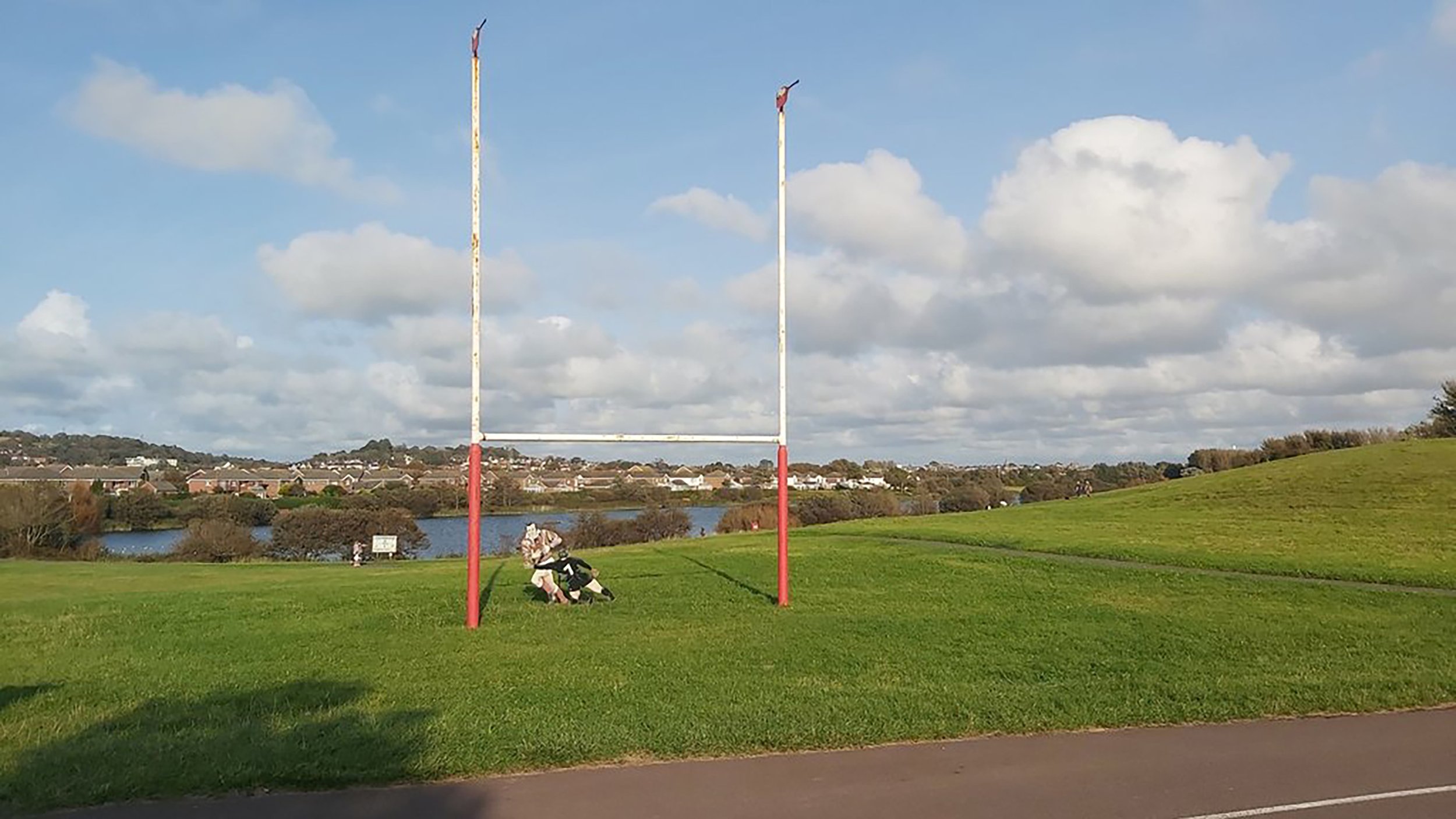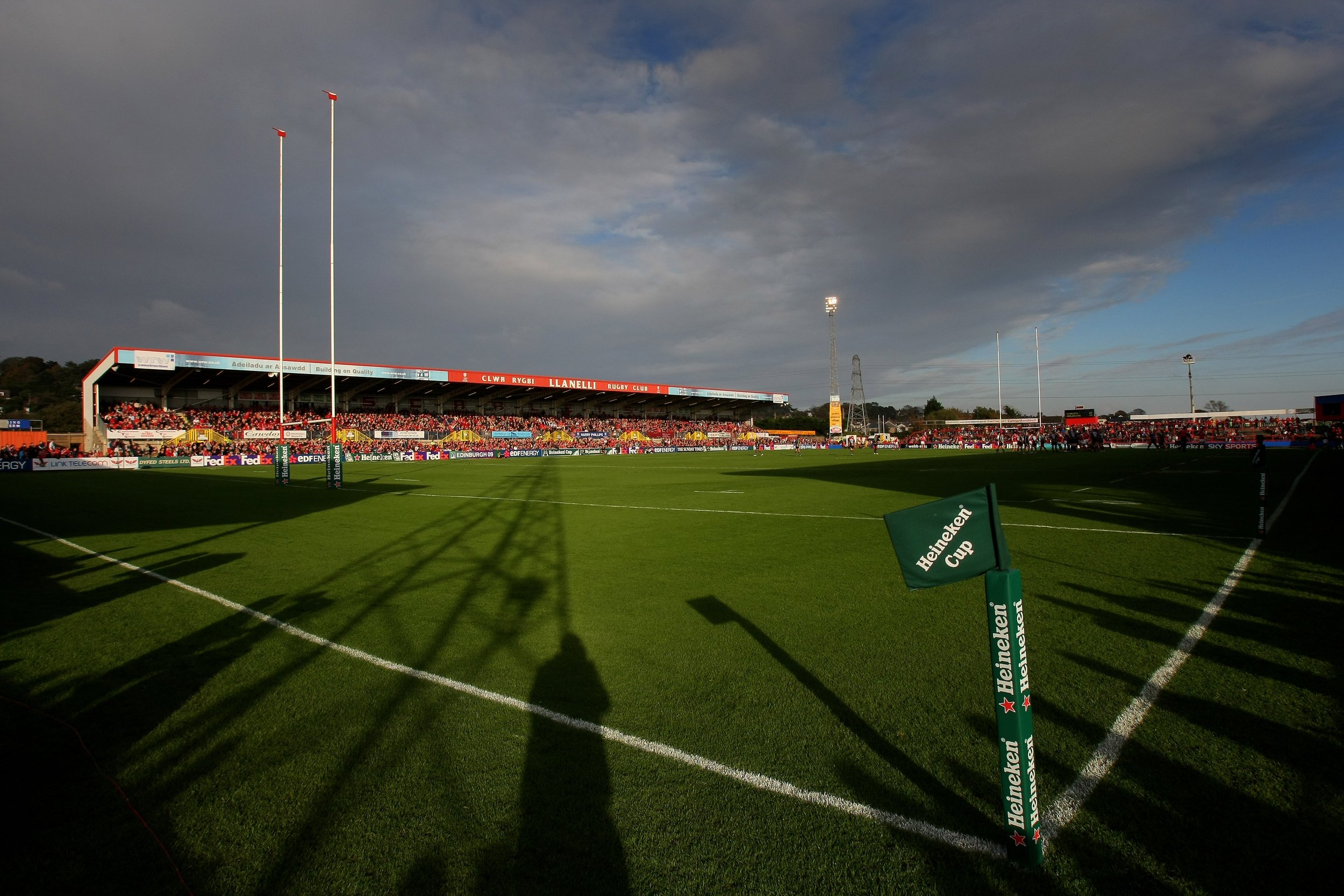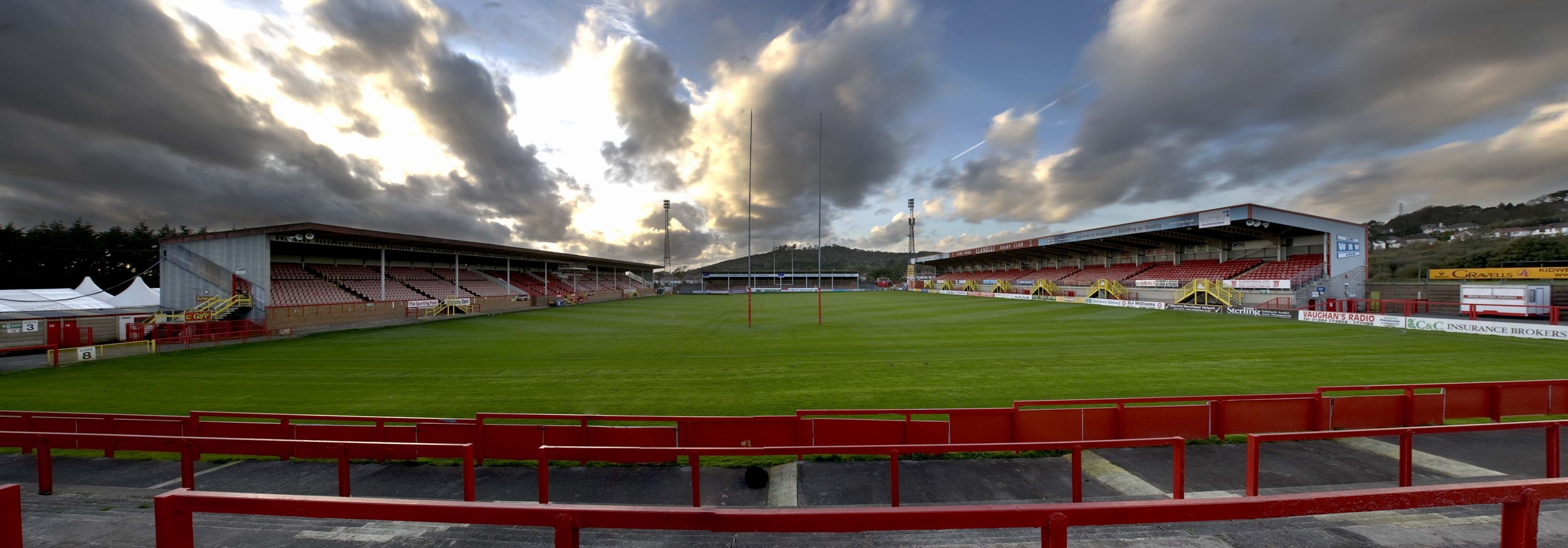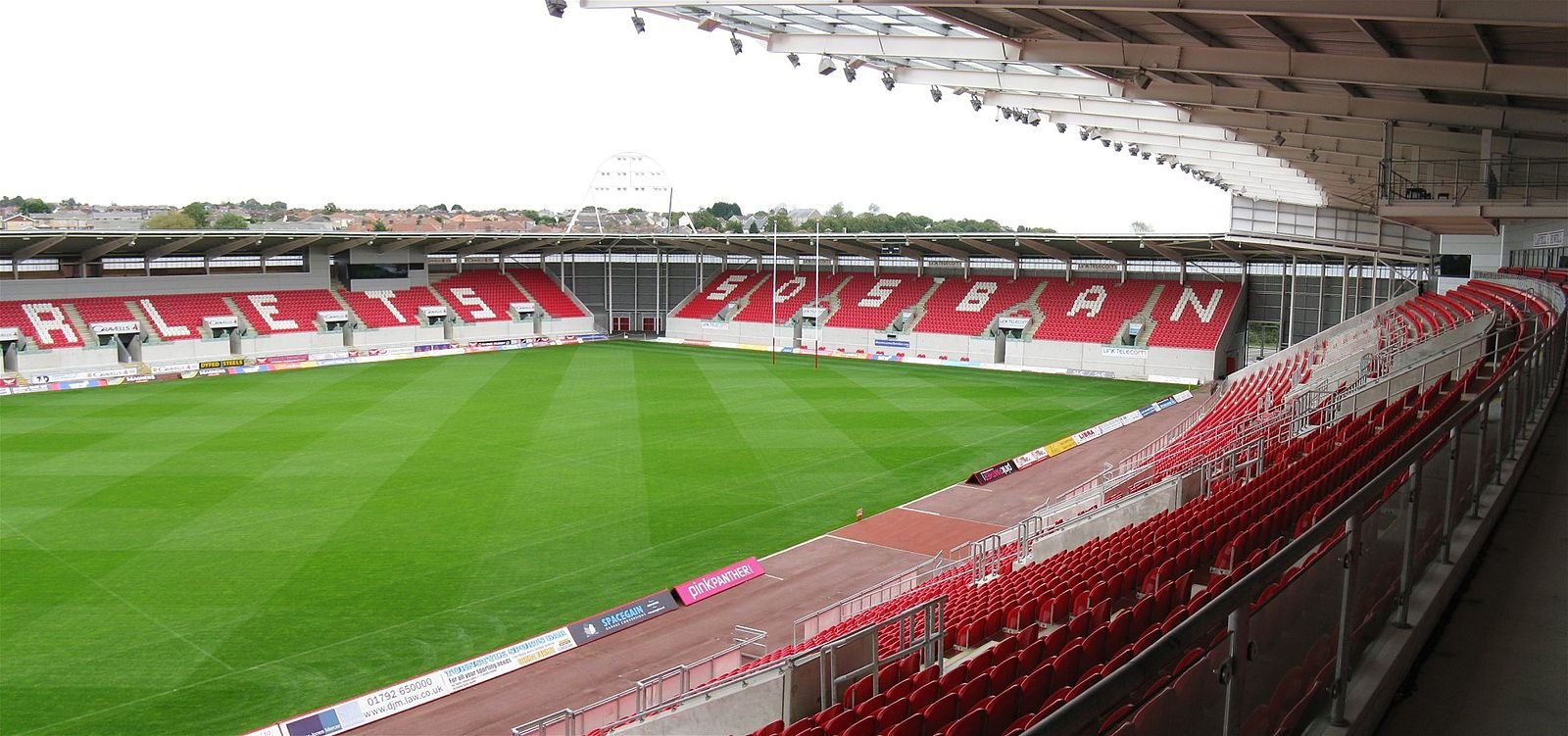
Stradey Park
RWC Guide to Lille
Two Tribes Winners
The Will Carling Story
£5 back issues
Shaunagh Brown
Poland
Ghost Grounds #11
Stradey Park, Llanelli, The Scarlets, 1879-2008
It was the oldest stadium in Wales when it was demolished. Stradey Park had hosted some of the earliest home internationals, witnessed David versus Goliath victories for Llanelli over the All Blacks and Australia, and served as a beloved scarlet fortress for well over a century.
Llanelli is one of those towns that by one rite of passage or another has become engrained in rugby’s history books. Known as the ‘tinplate town’, it was once a world centre for plated mugs and saucepans. It lies in the industrial south of the country, between Swansea and Carmarthen.
The formation of Llanelli RFC predates their move to Parc y Strade by six years. It was a group of young men, including John D Rogers, an industrialist who had learned to play the game at Rugby School, that convened on Easter of 1872 to form the club.
They were the second club to come into existence in the country, bested only by Neath who had formed a year previous. The distance between the two clubs was significant and at the time, there were little to no options to travel across the country. Nearly a decade passed before the two sides met, when in 1879, Neath travelled to South Wales for Stradey Park’s inaugural game.
The first international match planned to be played there was Wales versus England in the 1886 Home Nations Championship. Temporary stands were erected to accommodate the swathes of supporters, but due to complaints from the away team that the ground was frozen, the match was moved to the adjacent cricket pitch and all in attendance were forced to stand.
The ground waited another four years to host an international fixture, this time Wales versus Ireland. Two years later, they would return for the final match of the 1893 Home Nations Championship, in which Wales, captained by a legend of the game, Arthur Gould, reined victorious and lifted the Triple Crown for the very first time.
Llanelli’s tin industry influenced many traditions at Stradey Park. The Scarlets adopted song is ‘Sosban Fach’, meaning ‘little saucepan’. It is one of the best-known songs in the Welsh language. The club’s adapted version has included the lyrics ‘who beat the All Blacks?’ and ‘Who beat the Walla-Wallabies?’ over the years. Towards the end of their tenure at Stradey Park, the Scarlets had the posts at either end of the pitch adorned with red saucepans. They are certainly proud of their history.
A history involving countless victories against touring sides, the only international teams to beat Llanelli at home being South Africa and New Zealand. They used to cram 20,000 in for the big games. For famous wins against the Wallabies and the All Blacks, there were even more. The beating of Australia in 1964 marks what many would argue as the beginning of their strongest era. A star-studded line-up with the likes of Gareth Jenkins, Delme Thomas, Phil Bennett and Derek Quinnell as regular starters, would go on to defeat the mighty All Blacks in October of 1972. It is known as ‘the day the pubs ran dry’ from the “9-3” poem written by Welsh comedian Max Boyce.
It was one of those ‘I was there’ moments, as Boyce puts it. On the shrill blast of the final whistle at Stradey Park, the 26,000 or so fans spilled on to the pitch, hoisted the players into the air, and carried them off into the town to celebrate well into the night. It is hard to suggest there was a moment more significant or well-remembered in the long history of the ground.
The next notable period for Llanelli was the late 80s into the 90s. During those years they won the Welsh Cup five times and recorded yet another win against Australia in 1992, the then world champions. They were awarded the title of Best Team in Britain for the 1992-1993 season.
Stradey Park has hosted two World Cup matches, both involving Argentina. In 1991, they played Australia there and revisited the stadium for a clash with Samoa. By this point in time, the turn to professionalism had meant that the ground had changed hands from Llanelli RFU Ltd to the WRU for the sum of £1.25 million, the club having entered a period of financial difficulty.
The one and only rugby league game ever hosted at the ground took place during the 2000 World Cup, when Wales played beat Lebanon 24-22.
Union in Wales was about to change. In 2001, with Graham Henry at the helm of the national side, concerns were raised over the number of clubs competing at the top level. The transition to regional rugby came in 2003. Llanelli became Llanelli Scarlets and then just the Scarlets. The team now represents the three counties of Carmarthenshire, Ceredigion and Pembrokeshire.
Following the transition, the region continued to play at the Parc y Strade for several years. In that time, there were multiple Heineken Cup fixtures played at the ground as well as a run of UEFA Cup matches for Llanelli A.F.C.’s 2006 season.
On October 24th, 2008, a 129-year legacy finally came to an end. The Scarlets defeated Bristol 27-0 in the EDF Energy Cup match, and the occasion was celebrated with music performed by local choirs, appearances from former captains and a power final rendition of ‘Sosban Fach’ by the 10,000 or more Scarlet faithful.
The ground remained vacant for two years as housing developers sized up the potential of the land. There was public outcry from the surrounding residents whose windows displayed signs saying ‘Save Stradey Park.’ Finally, in 2010, despite resistance from the people of Llanelli, the ground was fully demolished. In its place there are now hundreds of Taylor Wimpey houses, the only remaining parts of the ground are the original posts which were preserved and plotted on one of the entrances to the town.
While the ground may be gone, the memories of that famous place will likely be handed down from generation to generation. Because after all, a little old town with no more than 30,000 residents could never forget the slaying of giants that happened in their own back yard.
By Tyrone Bulger











